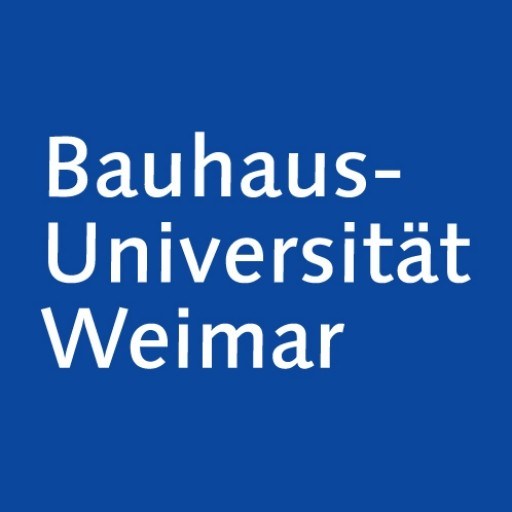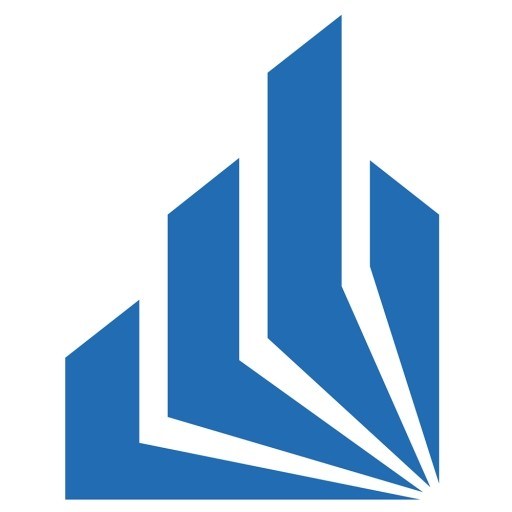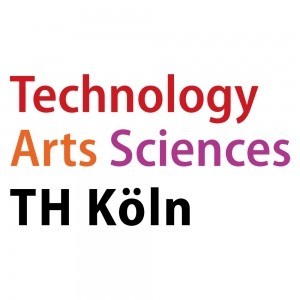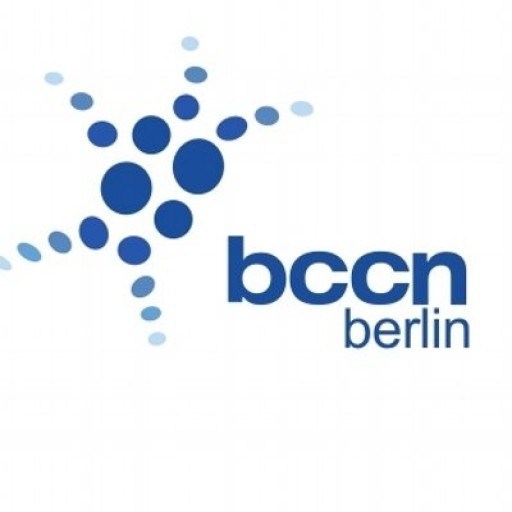Photos of university / #bauhaus_uni
The Master's program in Human-Computer Interaction (HCI) at Bauhaus-Universität Weimar is a forward-thinking and interdisciplinary degree designed to equip students with the skills and knowledge necessary to design, evaluate, and implement innovative interactive systems. This program combines elements from computer science, design, psychology, and user experience to prepare graduates for the rapidly evolving field of human-centered technology. Students will explore the principles of user interface and experience design, usability engineering, interactive media, and advanced prototyping techniques. The curriculum emphasizes a user-centered approach, ensuring that technological developments are aligned with human needs and behaviors. Practical projects, workshops, and collaborations with industry partners play a central role in the program, providing hands-on experience and fostering creative problem-solving skills. The program aims to develop professionals who can critically assess existing systems, propose novel solutions, and contribute to the advancement of interactive technologies across diverse sectors such as healthcare, education, entertainment, and smart systems. Graduates will be well-equipped for careers in UX/UI design, interaction design, usability consulting, research and development, and innovation management. The program also encourages international exchange and collaboration, reflecting the global nature of digital technology and human-computer interaction research. With access to state-of-the-art laboratories and a vibrant academic community, students will have ample opportunities to engage in cutting-edge developments, publish research, and participate in conferences. The Master's in Human-Computer Interaction at Bauhaus-Universität Weimar prepares students not only for current industry demands but also for shaping the future of interactive technology, emphasizing creativity, user-centered thinking, and technical expertise.
Educational organisation
The Master's programme comprises lectures, tutorials, seminars, and two student research projects as well as a Master's thesis. Students can choose from various specialised fields for the Master's thesis topic.The programme comprises 120 ECTS, which are divided into the following compulsory, elective, and research components:
- Four compulsory modules (Advanced HCI, Information Processing and Presentation, Virtual/Augmented Reality and Mobile HCI), each comprising 9 ECTS (36 ECTS in total)
- Elective modules (24 ECTS in total)
- Two research projects (15 ECTS each) in small groups of three to six students (30 ECTS in total)
- The Master's thesis module (30 ECTS).
Research projects are offered by most of our professors each semester.
The elective module (24 ECTS) provides students with the opportunity to select courses from other degree programmes and faculties alongside the general catalogue of courses offered within Computer Science and Media on a Master level. The elective modules also allow for the inclusion of a range of courses from the fields of Media Studies, Media Art and Design and Media Management as well as the Faculty of Architecture and Urbanism, and the Faculty of Art and Design or in Civil Engineering. An additional project from the HCI Master's programme comprising a maximum of 15 credit points may also be incorporated.
The third semester is an ideal semester for students to spend abroad, since it offers greater flexibility with respect to the choice of classes. The fourth and final semester is reserved for undertaking the Master's thesis project.
The standard duration of studies for the Human-Computer Master's programme is four semesters, leading to the award of a Master of Science degree. All Master's courses are offered in English.
For information about part-time studies, please contact the International Counsellor for details:
http://www.uni-weimar.de/de/medien/international
Study abroad unit(s)
Participants have the option of spending one to two semesters abroad at one of the many international partner universities of the Faculty of Media.Forms of assessment
Credits are earned through project presentations, marked assignments, written and oral exams. Course requirements are described in the module descriptions online.Course objectives
The Master's programme in Human Computer Interaction is designed to provide graduates with advanced analytical, creative, and research skills for the development of application systems for digital media and for user research in the field of HCI.Problem-based active learning and interdisciplinary coursework are central and important aspects of our curriculum. This significantly advances the soft skills of our graduates, particularly in teamwork, communication, and presentation skills.
Future graduates will work in industry and research to design and implement innovative interface technologies, usable systems and to evaluate these, as well as in consultancy positions on similar areas of expertise. We expect them to work in areas such as system design and implementation of novel user interfaces, virtual reality and visualisation systems, mobile systems, geographic information systems, usability engineering, and user research.
As the programme started in 2015, it has yet to produce alumni. However, based on feedback by alumni of our other MSc degree programme in the area of Media Informatics, we expect excellent job opportunities for future HCI alumni. Alumni of these other programmes frequently find employment in R&D departments at large companies (e.g., Volkswagen, BMW), research institutes (e.g., Fraunhofer), as well as at universities and tertiary educational institutions, where they often pursue a doctorate.
Language requirements
Applicants must provide proof of English at level B2 (Common European Framework of Reference for Languages - CEFR). Equivalent tests: IELTS (minimum 6.0 points) or TOEFL (Internet-based) minimum 80 points.Applicants must also provide proof of German at level A1 (Common European Framework of Reference for Languages - CEFR).
In order to register for the Master's thesis, students must provide proof of English at level C1 (CEFR). As part of our study programme, we offer advanced English classes up to level C1, which count towards the degree.
Academic requirements
The prerequisite for admission to the Master's degree programme is a Bachelor of Science degree in computer science, media informatics, media technology, or related fields with a strong focus on computer science.English skills at level B2 (CEFR)
German skills at level A1 (CEFR)
FAQ application HCI:
http://www.uni-weimar.de/en/media/studies/computer-science-and-media-hci/faq-application-hci/
Enrolment fees
Approx. 160 EUR per semester. This is a contribution to student services and the student council. It further includes free regional transport, student discounts for meals at the university cafeteria, and theatre and museum tickets as well as many other activities. The additional fee for the student ID ("Thoska") is 20 EUR (one-time only fee).Costs of living
In Weimar, living expenses tend to be lower than in larger German cities. We recommend that students budget at least 700 EUR per month.Job opportunities
There are many opportunities for students to find teaching and student assistantships at the university and with local companies.Basic English is spoken nearly everywhere, as the historic city of Weimar attracts many visitors from all over the world. However, once in Weimar, it will be useful to acquire some knowledge of the German language to simplify your daily life. Teaching and research assistantships, as well as a variety of other jobs, are readily available at the university and with local companies. The Student Services and the Student Council support students in finding jobs.
Funding opportunities within the university
There are scholarships granted by Bauhaus-Universität Weimar as well as scholarships granted by the International Office, which particularly supports international students and students going abroad for studies or internships.http://www.uni-weimar.de/en/university/international/to-weimar/scholarships/
Arrival support
International OfficeE-mail: international-office@uni-weimar.de
Phone 1: +49 (0) 36 43-58 23 65
Phone 2: +49 (0)36 43-58 23 73
Fax: +49 (0) 36 43-58 23 75
Address for visitors: Weimar, Campus.Office: Geschwister-Scholl-Straße 15, Germany
Weimar International Network
Information, services, and buddy programme for international students prior to arrival
See: http://www.uni-weimar.de/win
Services and support for international students
Academic Support and International Counselling: Faculty of MediaMs Annette de Jong
E-mail: annette.de.jong@uni-weimar.de
Phone: +49 (0) 36 43-58 38 88
Fax: +49 (0) 36 43-58 37 01
International Office
E-mail: international-office@uni-weimar.de
Phone 1: +49 (0) 36 43-58 23 63
Fax: +49 (0) 36 43-58 23 75
See: http://www.uni-weimar.de/international
Address for visitors: Weimar, Campus.Office, Geschwister-Scholl-Straße 15, Germany
Weimar International Network
See: http://www.uni-weimar.de/win
WIN is an online platform of services for international students in Weimar. It offers useful
information and events, fosters contact between international and German students, and provides orientation for newcomers to Bauhaus-Universität Weimar. WIN offers helpful advice, links and contact information. You can also register to participate in cultural exchange programmes and subscribe to the monthly newsletter "curious@bout Weimar." The calendar contains information about upcoming international events in Weimar and the surrounding region.
WIN is a project of the International Office of Bauhaus-Universität Weimar, coordinated in
cooperation with the Studentenwerk Thüringen and the student-initiative Bauhaus Internationals.
Accommodation
The "Studentenwerk Thüringen" (student services Thuringia) administers approx. 1,100 apartments in Weimar. Monthly rates vary from 105-280 EUR. The university itself does not provide accommodation.E-mail: wef@stw-thueringen.de
Phone: +49 (0)3 61-7 37 18 21
Visiting address: Weimar, Marienstraße 15 a
Website: http://www.stw-thueringen.de
Application: https://tl1host.de/SWJ/?lang_id=2
Typically, up to five students share living quarters. Students have their own bedrooms and share a kitchen and a bathroom. Most rooms are furnished (bed, desk, chair, cupboard, shelf), but kitchenware and appliances are not included. Mentors for international students provide assistance in settling in during the first couple of days and also organise events.
Students advertise private and shared flats on the university website ("Pinnwand"): http://www.uni-weimar.de.









